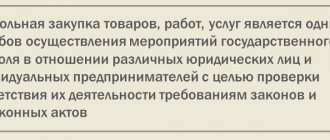When seeking medical help, each of us expects quality treatment and recovery. For the most part, we trust doctors and listen to their recommendations - we buy prescribed medications, take preventive measures, agree to examinations and operations. But sometimes, for various reasons, the sick person does not want to “accept” medical help and categorically refuses it. Is such a refusal legal and when is it permissible? Does “forced medical care” exist in Russia, when treatment cannot be refused? About this in our article.
The legislative framework
Speaking about the rights and responsibilities of the patient, we will rely on the following legislative acts of the Russian Federation:
- State Constitution. Art. 45 and 46.
- Federal Law No. 323, adopted in November 2011, “On the fundamentals of health care in the Russian Federation.” Art. thirty.
- Federal Law No. 1499-1, adopted in June 1991, “On health insurance in the Russian Federation.” The final variation of the law is the 1993 version. Art. 6 and 15.
- Federal Law No. 2, adopted in January 1996, “On the protection of consumer rights.” Art. 17, 44-46.
- Federal Law No. 4866-1, adopted in April 1993, “On appealing in the judicial system of the Russian Federation decisions and actions that violate the rights of citizens.”
It should be noted that the fundamental document in our case on the rights and responsibilities of the patient is Law No. 323. Let's analyze it in detail.
Rights under Federal Law No. 323
The rights and responsibilities of the patient are one of the areas covered by the law “On the Fundamentals of Health Protection in Russia”.
The full list of patient rights, according to the Federal Law, is as follows:
- The right to respectful and humane treatment from doctors and other health workers and service personnel.
- Carrying out both examination and treatment in appropriate conditions that comply with current sanitary and hygienic standards.
- The right to hold a medical consultation, the possibility of consulting another specialist.
- Relief of severe pain caused by therapy, surgery, etc.
- The right to maintain medical confidentiality about the procedure performed, treatment, and general medical history.
- Own written consent to medical intervention, as well as informing doctors about this possibility.
- The right to refuse medical care.
- Obtaining complete information about the state of your own health, the rights and responsibilities of the patient and the doctor.
- Use of a full package of medical services within the framework of the current voluntary medical insurance program.
- The right to compensation for damage to him (the patient) in the event of harm to health by health workers. But only if the doctors’ guilt is proven in court.
Let us note that the rights and responsibilities of patients and healthcare workers will be directly interrelated. What does it mean? The patient's rights are the doctor's responsibilities, and vice versa.
We continue to analyze the legislative act.
Consent to intervention - Article 32
The Law on the Protection of Citizens' Health in Article 32 talks about the need to obtain informed voluntary consent from the patient before any medical intervention.
In cases where the patient is in a state where it is impossible to express his own will, and intervention is extremely necessary, the issue is resolved at a consultation or directly by the attending physician, after which officials of the medical institution are notified.
For minors under 15 years of age, as well as incapacitated citizens, informed consent is signed by their legal representatives. In their absence, the decision is also made by the council or the attending physician.
Responsibilities under Federal Law No. 323
Now let's list the patient's responsibilities:
- Comply with the internal regulations of the medical institution where he (the patient) is undergoing examination or treatment.
- Take care of your health. What does affirmation mean? Do not perform actions that could harm the health of both your own and other patients of the medical institution.
- Respect the rights of doctors, service personnel, and other patients.
- Inform the treating specialist about your misunderstanding/incomplete understanding of the meaning of the upcoming medical intervention.
- Follow the rules of conduct prescribed for patients in this medical institution. In particular, show up on time for scheduled procedures and examinations. If a visit is impossible or you are late, you must promptly notify your doctor or nursing staff (nurse) about this fact.
- Follow the instructions of the treating specialist. Report contacting another doctor for help or stopping prescribed treatment.
Once again, the responsibilities of the patient and the physician are intertwined. The rights of a medical institution will directly follow from the responsibilities of its patients.
How consent or refusal of medical services is formalized
So, informed consent (or refusal) is formalized in two cases:
- before direct medical manipulation (examination, operation) in a medical institution where the person has not previously been observed. For example, Ivanov is “attached” to clinic No. 1; on the referral of a surgeon from this clinic, he was admitted to the surgical inpatient department of the regional clinical hospital for a planned operation. On the day of admission to the hospital, he formalizes consent (or refusal) for medical intervention.
- when choosing a medical organization: upon initial contact for the entire period of service. For example, Petrov E.P. moved from Sevastopol to Nizhny Novgorod, where he went to the clinic with a compulsory medical insurance policy for “attachment”, filled out the consent. If the patient does not have a medical card in hand, then you can write an application to the chief physician to request the card from the previous clinic, indicating at what address it is located.
Consent, as well as refusal of treatment, must be documented in writing. It is allowed to draw up a document in electronic form, but using an enhanced qualified (or confirmed through identification in government services) electronic signature.
For public medical institutions, consent and refusal forms are approved by Order of the Ministry of Health of the Russian Federation No. 1177n dated December 20, 2012. In paid clinics they are also required, but there may be other forms. In their content they must be identical to those contained in the Order.
A sample consent is presented in Appendix No. 2 of the Order:
A sample refusal is presented in Appendix No. 3 of the Order:
Consent or refusal must be completed and signed personally by the patient or one of the legal representatives (parents, guardians). The signature is also affixed by an employee of the medical organization. The document is filed in the patient's record.
We would recommend making a copy in case of adverse consequences of medical intervention or non-intervention (depending on which form was filled out). If you can't make a copy, you should at least take a photo with your phone.
News periodically appears in the media that doctors are being held accountable for negligence if they used medications incorrectly, refused to admit an emergency patient, made an inaccurate diagnosis, did not provide assistance in a timely manner, etc. In fact, there are tens of times more cases of dissatisfaction with medical practices than are published in news reports. It is not easy to prove the guilt of an unscrupulous physician; this is where copies and photographs of those documents stored in the medical record come in handy.
Classification of duties
Now let's move on to more general cases. All patient responsibilities can be divided into three categories:
- Provided for by the Russian Civil Code. These will be the basic responsibilities of any citizen as a customer, a consumer of services in our country.
- Responsibilities provided for by the Law “On Protection of Consumer Rights”. Here we consider what the consumer of any service must. In particular, medical.
- Responsibilities provided for specifically by Federal Law No. 323, concerning the protection of the health of Russian citizens. Here the patient is considered only as a consumer of medical services.
Now it makes sense to become more familiar with the most important responsibilities of the patient.
Impossibility of refusal
Good health is the most important indicator of a comfortable life for any person. That is why it must be treated with special responsibility. Unfortunately, it is often necessary to resort to medical intervention. The best option is when the patient can independently choose a clinic, a doctor, whom he completely trusts with his health and even life. But there are cases when patients are not able to make independent voluntary decisions.
Law No. 323 sets out in detail situations where refusal of medical intervention is simply unacceptable, options and provisions are considered when medical services should and can be provided without signing consent.
Passing medical examinations: legislative framework
When talking about the rights and responsibilities of patients in medical law, one cannot help but touch upon such topics as medical examinations and medical examinations. This preventive measure is also considered the patient’s duty. However, the obligation does not apply to all Russian citizens - only to certain categories of workers.
Now let's present the legislative acts regulating this issue:
- Articles 76 and 213 of the Russian Labor Code.
- Federal Law No. 273 (version 2012) - “On education in the Russian Federation.” Article 48.
- Federal Law No. 3132-1 (1992 version) - “On the status of a judge in Russia.” Article 4.1.
- Federal Law No. 35 (version from 2005) - “On the electric power industry in the Russian Federation.” Article 28.
- Federal Law No. 52 (version 1999) - “On epidemiological and sanitary well-being in the Russian Federation.” Article 34, paragraph 4.
Now let us briefly present the content of the prescribed legislative acts.
Important to consider
Having examined the main legislative acts on refusal of medical intervention, we can draw the main conclusions that the patient has the right to:
- Receiving medical care that will be provided to him in any emergency.
- Independent choice of medical treatment facility, as well as refusal due to any circumstances from medical intervention.
- To receive free medical services within the framework of the State Guarantee program and to alternative paid services.
Russian citizens, regardless of location, have the right to receive medical care throughout the Russian Federation under the compulsory medical insurance policy.
Who is required to undergo medical examinations?
Let us note once again that this duty of the patient in the Russian Federation is selective. It concerns only the following categories of persons:
- Workers employed in hazardous industries, workers whose activities are associated with working conditions hazardous to life and health.
- Workers in the food industry, trade, and public catering.
- Persons whose work activity is related to any type of transport.
- Workers at waterworks.
- Specialists working in children's and medical institutions.
- Working in the judicial system.
- Workers in the electric power industry.
The above legislative acts prescribe mandatory preliminary medical examinations for these categories (to confirm professional suitability), as well as periodic annual medical examinations.
The following details are indicated:
- An additional duty of the teacher is to undergo an extraordinary medical examination at the direction of his employer.
- Those working in the electric power industry are required to undergo pre-shift medical examinations aimed at identifying the use of alcohol, psychotropic or narcotic substances.
If a patient belonging to one of the categories indicated in the list refuses to undergo a medical examination, he will not be allowed to work. He can return to work only after satisfactory completion of this preventive examination - if it confirms his professional suitability.
Responsibilities of those suffering from dangerous diseases
A very important topic in the overall story about the responsibilities of the patient and the professional role of the doctor. Here we will rely on Decree of the Russian Government No. 715 (2004) - “List of socially significant diseases, pathologies that are socially dangerous.”
It follows from this legislative act that citizens suffering from at least one disease from the List are obliged to:
- Get a medical examination.
- Engage in full treatment of pathology according to the recommendations of your doctor.
- Prevent relapse or exacerbation by taking preventive measures.
The List includes the following diseases:
- HIV.
- Hepatitis forms B and C.
- Tuberculosis.
- Diphtheria, etc. (total 15 items).
Responsibilities of those undergoing treatment
We have looked at the concept and general characteristics of the patient's responsibilities, but it should be noted that when many people talk about patients, they still mean only those people who are currently undergoing treatment. Let's define specifically the debt of these individuals:
- Follow the treatment regimen. Even if he prescribes their temporary disability.
- Do not violate the internal regulations of a particular medical institution (clause 3, article 27 of Federal Law No. 323).
- The obligation to follow the doctor’s recommendations, take prescribed medications, undergo prescribed procedures, and provide complete comprehensive information about the state of your health. In practice, this obligation is declarative in nature - the patient will not face any punishment if he forgets, say, to take his pills on time. Or replace an expensive medicine with a cheap analogue.
- The obligation to assist the medical organization in the proper and complete performance of the medical services provided to it (the patient). The basis for such a statement is the provisions on the contract, which are prescribed in Art. 718 of the Civil Code.
- Comply with the treatment regimen, rules of patient behavior, approved by internal regulations (directives, orders, etc.) of the medical institution - clinic, hospital, etc.
Protecting Patient Health
In medical practice, there have been cases when legal guardians, by signing a waiver of medical intervention, exposed the patient’s life to risks that threatened life and led to death. To avoid such situations, the Federal Law on the Protection of Citizens' Health clearly defines the criteria that give permission for legal representatives to sign a waiver of medical intervention.
If there is a need to sign a waiver of an intervention that may save the patient’s life, the legal representatives of the incapacitated patient are required to notify the guardianship authorities about this. As soon as the refusal is completed and signed, the information should reach the relevant authorities immediately the next day.
Despite the decision made by the legal guardians, the attending doctor, in order to save the patient’s life, has in some exceptional cases the right to go to court to challenge the refusal.
What is “non-adherence to treatment”?
There is no clear interpretation of this phrase. To determine its essence, we will rely on Order No. 624n of the Ministry of Social Development and Health of the Russian Federation (adopted in 2011) - “On the procedure for issuing certificates of incapacity for work.”
This act of violation of the treatment regimen defines the following actions/inactions:
- Unauthorized leaving the hospital.
- Traveling to another administrative region without permission from the attending physician.
- Late attendance at an appointment.
- Returning to work without closing a certificate of temporary incapacity for work.
- Refusal to undergo a medical and social examination.
- Failure to appear at a scheduled medical and social examination procedure.
- Other violations.
The attending doctor has the right to note all of the above on the patient’s temporary disability sheet.
If we move on to medical practice, then non-compliance with doctor’s orders is usually the following:
- Refusal to take prescribed medications.
- Refusal of tests and other medical interventions.
- Failure to appear for a preventive medical examination.
Intervention without patient consent
Article 34 sets out the provisions when medical intervention is carried out without the patient's consent. Hospitalization, isolation, observation or medical examination is permitted in relation to those who suffer from diseases dangerous to others, mental disorders, who have committed acts dangerous to society.
The patient's consent is also not required in the following cases:
- When the patient’s life is at risk, he is in an emergency condition and cannot express his wishes, emergency help is needed.
- Emergency assistance is required, and legal representatives are not nearby.
- If you have a disease that puts the health and lives of others at risk. These include various viral fevers, HIV, hepatitis B, C, diphtheria, leprosy, pediculosis, malaria, sexually transmitted infections, melioidosis and glanders, tuberculosis, anthrax, plague, cholera.
- Serious severe mental disorders.
- During forensic medical examinations, as well as forensic psychiatric examinations.
- When a person commits a crime.
The decision on any medical intervention without the patient’s open consent is made by the attending physician or a council of doctors. The legislation of the Russian Federation gives the right to do this. If it is impossible to hold a consultation, and the attending doctor does not want to take responsibility, the decision on the need for intervention can be made by the court.
Sanctions for issuing a certificate of temporary incapacity for work
Punishment for violating patient duties can be imposed on a citizen when he takes sick leave at work. It manifests itself in a reduction in the amount of temporary disability benefits.
In Russia, this sanction is regulated by Part 1 of Art. 8 Federal Law No. 255 (adopted in 2006) - “On compulsory social insurance of a citizen in case of temporary disability.” The following is considered sufficient grounds for applying a sanction:
- Violation of the treatment regimen prescribed by a doctor during temporary incapacity for work, without good reason.
- Failure to appear for a scheduled medical examination or medical examination of a citizen in the absence of valid reasons.
- Injury or illness that occurred as a result of the patient’s alcohol, drug, or toxic intoxication. Or his actions directly related to such a condition.
There is one exception to all that has been said. The amount of benefits for temporary disability is prohibited from being reduced to persons if it (disability) is related to an injury received at work or an accident at work.
Is refusal of treatment a sanction?
Many patients are interested in: can a medical organization, for some reason, refuse to treat them? No, this is not possible under any breach of patient responsibilities. The legal basis for this statement is as follows:
- Civil Code of Russia, Art. 772. Reliance on the fact that the contract for the provision of medical services is public. A medical institution cannot fail to provide its services if it has the opportunity to provide them.
- Determination of the Constitutional Court No. 115-O (presented in 2002).
Payment for medical services
The patient is obliged to pay for medical services voluntarily provided to him, if they are paid, at the cost specified in the contract concluded with him.
Additionally, the following is important:
- If the contract requires an advance payment, then failure to pay it on time will be regarded as a refusal to provide services.
- If the patient refuses to comply with the terms of the contract, he must still pay the medical organization for the expenses actually incurred by it.
There are no areas where a person has only rights. Civil society always means presence and responsibilities. The medical field will be no exception. The patient, the doctor, and the medical institution as a whole have rights and responsibilities.
Consequences of failure to register an ID for a medical institution
The legal consequences of evading written documentation of the IDO are administrative sanctions.
The presence of IDO (informed voluntary refusal), as well as IDS (informed voluntary consent) is one of the licensing requirements regulated by the fifth paragraph of the Russian Government Decree “On licensing of medical activities” number 291 of April 16, 2012.
Both consent and refusal must be in writing
A warning is issued and the organization's activities are suspended. The largest fine for a legal entity is 200 thousand rubles.
In addition, such a violation may be taken as a violation of the consumer’s rights to provide necessary and truthful information about medical services. In this case, the largest fine is 10 thousand.
Naturally, society will not leave such an incident unnoticed, so the reputation of the medical institution may be damaged.
So, refusal of medical intervention can be issued either by the patient himself or by the person who represents him. In this case, a person must understand the consequences and take responsibility for what may happen to health later.










